You do not 'have' Depression or ADHD or PTSD or [insert mental 'disorder']
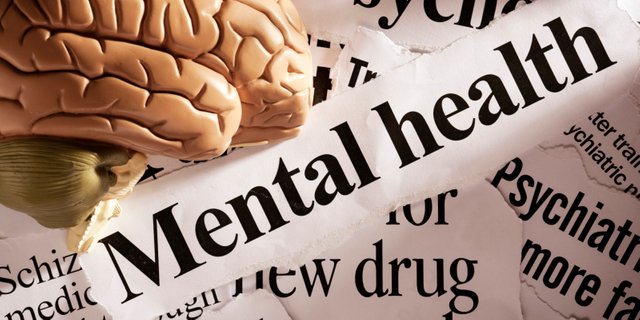
That’s right. You don’t 'have' any of these so-called ‘illnesses’ or ‘diseases’ because they don’t physically exist. I’ve quoted the Chair of the DSM-IV Task Force before, and I’m sure I’ll quote him again: ‘There are no objective tests in psychiatry’ (Frances, 2014, p. 229, emphasis added).
There are no objective tests in psychiatry: not for schizophrenia; not for depression; not for ADHD; not for PTSD; and not for any other psychological ‘disorder’.
Now, that does not mean that the things people experience or ways they behave which many laymen and psychiatrists describe as symptoms of discrete ‘disorders’, are not real. It does not mean that. But they are experiences/behaviors, not physical ailments.
Being Precise With Words
If someone were to tell you that they ‘have’ sadness, anger or happiness, you’d no doubt think their phrasing a little odd. That’s because we feel sadness, despair, happiness, joy, anxiety, anger, etc. These are emotional states that we experience. Describing experiences as something constant and intractable is neither valid nor useful.
PTSD stands for ‘post-traumatic stress disorder’. The use of the word ‘disorder’ is superfluous. What is wrong with saying “I experience post-traumatic stress” rather than I have post-traumatic stress disorder?
You may think it pedantic of me to argue against describing experiences as ‘illnesses’, ‘disorders’, or ‘diseases’, but this issue is far from trivial. How we describe our world of experiences fundamentally shapes our interpretations of those experiences, and ultimately how we view (and often judge) ourselves.
Don’t Biomedical Explanations Decrease Stigma?
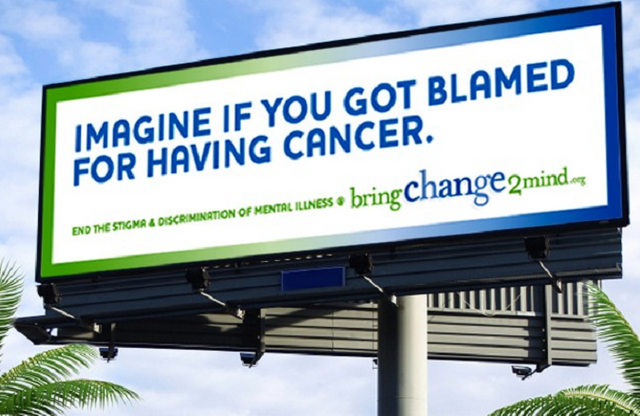
Many consider the ‘disease-model’ (Kinderman, 2014) approach to mental health useful for reducing stigma by teaching people to view mental ‘disorders’ as no different from other physical ailments such as cancer or diabetes. As I’ve already explained, unlike cancer and diabetes, there are no laboratory tests to distinguish a ‘normal’ individual from a mentally ‘disordered’ one. For example, here's a list of the laboratory tests for diabetes. You won't find any such list for mental 'disorders'. Anyway, to address the view that biomedical models of mental health reduce stigma, a meta-analysis by Kvaale, Haslam, and Gottdiener (2013) is instructive.
The researchers found that although biogenetic explanations of mental health issues can reduce blame among people diagnosed with a mental ‘disorder’ and their families, they ‘induce prognostic pessimism and negative stereotyping regarding dangerousness’ (Kvaale et al., 2013, p. 790). The concern is that such pessimism could lead to self-fulfilling prophecies whereby people resign themselves to their current psychological state, becoming less willing to enact positive changes in their lives.
It has also been proposed that biological explanations of mental health issues lead to increases in clinicians’ empathy for their clients. However, Lebowitz and Ahn’s (2014) findings contradict this view:
Biological explanations have been thought to make patients appear less accountable for their disorders, which could increase clinicians’ empathy. To the contrary, biological explanations evoked significantly less empathy. These results are consistent with other research and theory that has suggested that biological accounts of psychopathology can exacerbate perceptions of patients as abnormal, distinct from the rest of the population, meriting social exclusion, and even less than fully human. (Lebowitz & Ahn, 2014, p. 1, emphasis added)
Who benefits from a reduction in blame?
Let’s start with an obvious one: ourselves.
Change is hard. Really, really, really hard. The ‘actor-observer effect’, a well-established phenomenon within social psychology (Greenberg et al., 2015), tells us that when we fail, we prefer to look for extraneous causes to explain our undesired circumstances, rather than in the mirror. In contrast, when we achieve success, we have no problem taking full responsibility for our accomplishments. Thus, when we feel depressed, anxious, or stressed, we’re prone (whether this is learned or innate is a topic for another time) to find a scapegoat. “The world has to be against me in some way. Why else would I have failed?” “It wasn’t a lack of effort that led to my poor grades, it was that damned teacher who doesn’t like me.” We’ve likely all had similar conversations with ourselves – I know I certainly have.
Attributing mental health issues to brain imbalances may also benefit family members wishing to avoid responsibility for past transgressions. “If your problems are all a result of the inner-workings of your brain, then how on earth could my parenting have anything to do with it?” With regards to schizophrenia, the truth is, as James (2016) inconveniently (for abusive parents) points out, that although it tends to run in families, one of its main ‘causes’, sexual abuse, does too.
Big-Pharma
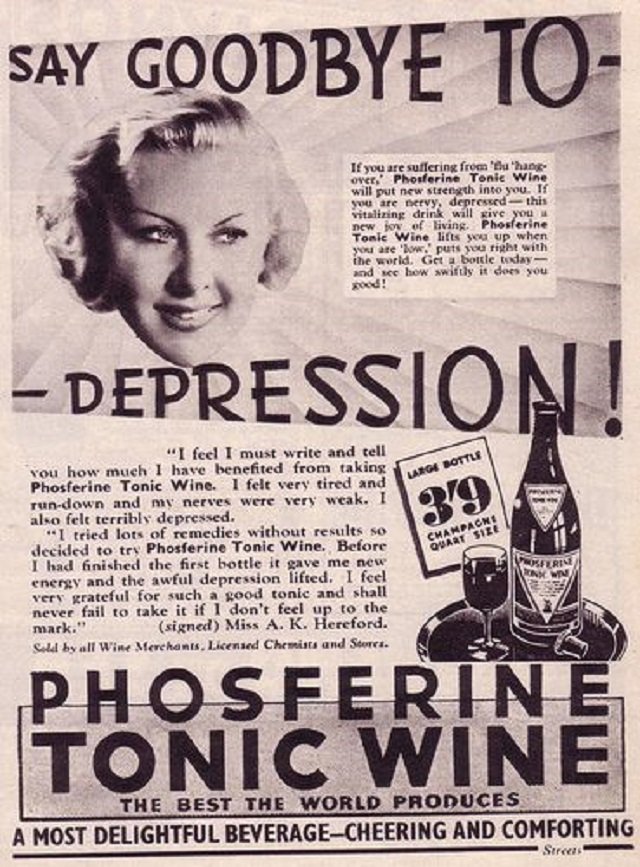
The pharmaceutical industry has developed an ingenious way to tap into our need to offload our dissatisfaction with various aspects of our lives. You aren’t depressed because you were beaten, or verbally abused, consistently tell yourself that you’re unworthy of respect and affection from others, or make no effort to understand your history and reform or discontinue toxic relationships, no, you just have a few too many (or too few) neurotransmitters floating around in your head. But fear not, we have the cure. There’s no need to make any lifestyle changes, just take these pills and you’re feel right as rain.
This giant con perpetuated by big-pharma and enabled by the American Psychiatric Association (APA) and other government institutions around the world, continues to wreck the lives of millions of people by convincing them that they have little power to improve their present circumstances.
Diagnostic Inflation
‘[A]ll of our diagnoses are now based on subjective judgments that are inherently fallible and prey to capricious change.’ (Frances, 2014, p. 12)
Whitaker (2010) chronicles the sordid history and present state of psychiatry in his seminal work, Anatomy of an Epidemic, in which he shows how the number of Americans now receiving government benefits for mental ‘disabilities’ has sky-rocketed over the last few decades. This diagnostic inflation is, in-part, the result of the ‘out-of-control psychiatric diagnosis’ (Frances, 2014) that the APA’s (2013) Diagnostic and Statistical Manual of Mental Disorders, enables.
“Teacher, Leave Them Kids Alone!”

Are you aware that in order to get paid, ‘a doctor [in the US] must make an approved diagnosis’ (Frances, 2014, p. 85)? These perverse incentives are one of the reasons why children in the US consume 3 times more stimulants than the rest of the world combined (Whitaker, 2010). As I mentioned in my lecture, The War on Children, 10% of children in the US are now considered to have ADHD. And there are now at least one or two children in every classroom, on medication. These diagnoses are primarily the result of teacher complaints. Being bored, disruptive, or lacking the desire to participate or complete homework assignments are now considered symptoms of a mental ‘disorder’ by many teachers. This is Soviet-style madness.
<iframe width="853" height="480" src="
Here are some of the adverse effects of Ritalin and other ADHD medications:
- Physical problems include drowsiness, appetite loss, lethargy, insomnia, headaches, abdominal pain, motor abnormalities, facial and vocal tics, jaw clenching, skin problems, liver disorders, weight loss, growth suppression, hypertension, and sudden cardiac death.
- Emotional difficulties include depression, apathy, a general dullness, mood swings, crying jags, irritability, anxiety, and a sense of hostility toward the world.
- Psychiatric problems include obsessive-compulsive symptoms, mania, paranoia, psychotic episodes, and hallucinations. (Whitaker, 2010)
Even if you were to maintain the belief (utterly unsupported by the evidence) that ADHD is an innate ailment, the astronomical rise in its diagnosis over the last few decades could not possibly be the result of genetic variations in the general population.
I will be addressing genetic research in the next part of my series on schizophrenia but for now, suffice it to say that ‘thousands of studies on hundreds of putative biological markers have so far come up empty.’ (Frances, 2014, p. 11)
Childhood is a now a Mental ‘Illness’
The annual cut-off date of birth for entry to school in British Columbia, Canada, is Dec. 31. Therefore, children born in December are typically the youngest in their grade. Research by Morrow et al. (2012) reported the following:
- Boys were 30% more likely and girls 70% more likely to be diagnosed with ADHD, if they were born in December rather than January.
- Boys were 41% more likely and girls 77% more likely to be given medication for ADHD if they were born in December rather than January.
In 21st century America, kids are no longer permitted to be kids.
More Perverse Incentives
PTSD is the easiest mental health diagnosis to have labelled ‘service connected’ (Dobbs, 2009). This allows veterans to receive up to $3,000 in monthly disability benefits. These financial incentives discourage recovery efforts and exacerbate mental health issues:
‘[U]nlike a vet who has lost a leg, a vet with PTSD loses disability benefits as soon as he recovers or starts working. The entire system seems designed to encourage chronic disability.’ (Dobbs, 2009, p. 68)
‘Sadness should not be synonymous with sickness’
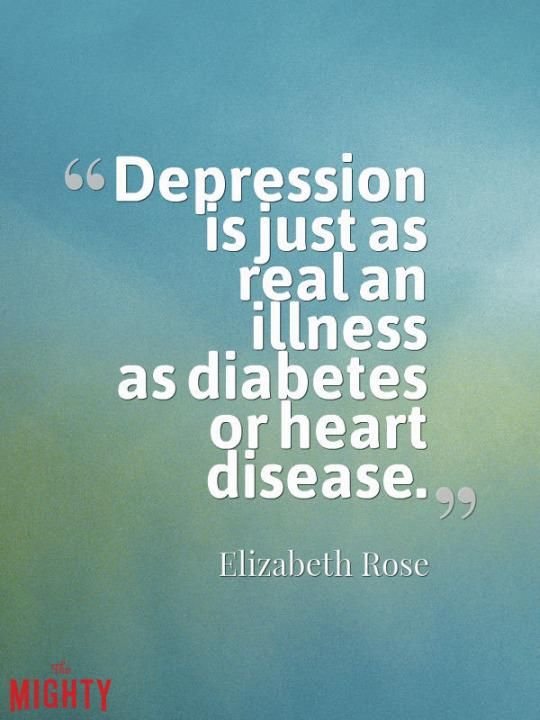
If, following an awful event such as a bereavement, you happened to experience a depressed mood, loss of interest in everyday activities, and a few other things (e.g. a diminished ability to concentrate) for a period of 2 weeks, the APA (2013) considers you to have major depressive disorder (MDD). In the past, these experiences would have been understood as a natural reaction to a terrible loss, but not anymore.
Millions of people take medicine they don't need for a diagnosis of MDD that they don't really have, on the false assumption of chemical imbalance (Frances, 2014, p. 155)
Across the Pond
Although the American Psychiatric Association continues to enable big-pharma’s drug-pushing, the British Psychological Society is markedly different in their view of mental health. I was pleasantly surprised by their two recent reports on bipolar ‘disorder’ and psychosis, with the former stating that mental health services ‘should not insist that all service users see their problems as an ‘illness’ and take medication.’ (BPS, 2010, p. 8). The BPS also has a much more conservative approach with regards to the notion of psychological experiences as brain ‘diseases’ or chemical ‘imbalances’:
[N]eurochemicals interact with one another in complex ways, thus we cannot assume that just because an effective medication is thought to target a particular neurotransmitter, this brain chemical must play a key role in causing or maintaining the symptoms of mania or depression. Despite the advances that have been made in this field of science it remains the case that we have no way of directly and unambiguously measuring the sequence of neurochemical events that leads up to periods of depression or mania. Even if we did have such a technique, this would not allow us to say with certainty that this sequence of events actually causes the emergence of depressive or manic symptoms, rather than merely accompanying it. (BPS, 2010, p. 29)
Professor Peter Kinderman (University of Liverpool) who co-wrote the BPS’s recent reports also delivered a superb lecture discussing the need for ‘a whole new approach to mental health and wellbeing’, which upon re-watching still moves me to tears.
<iframe width="853" height="480" src="
Our Words Have Tremendous Power
I want to acknowledge that throughout this article, I’ve written words such as ‘disorder’ and ‘illness’ in quotations. This is not to minimize or negate the seriousness of sensations people who have these words applied to them, experience. However, I simply refuse to speak in the language of the pharmaceutical industry and large proportions of the psychiatric community. I will not accept calling people’s experiences ‘diseases’ or illnesses’, no matter how foreign they may be to my own experiences.
Finally, I do not deny that some people find it useful to think of themselves as having an illness/disorder. In fact, within the Steemit community I've seen several users including @lauralemons, @kaylinart, @cherry, @skum, and @karenb54 publish posts about their experiences with ADHD and depression. I would merely invite these and other people to examine whether their views on mental health are truly beneficial to their wellbeing, or whether such labels are an inhibitor to personal growth. Obviously, I could not possibly comment regarding their individual circumstances but the overarching purpose of this article has been to create awareness of the serious issues within the field of mental health that are so often overlooked (or intentionally hidden) by the pharmaceutical industry and psychiatric community.
Thank you for your attention.
‘Don’t ask what’s wrong with me, ask what’s happened to me’ (Jacqui Dillon)
My name’s Jonathan, a graduate (MSc) psychology student who recently launched PsychologyTube: a YouTube channel devoted to discussing psychological issues from a critical perspective. I created the channel, in part, because I was dissatisfied with existing YouTube channels which tend to simply echo the information found in most textbooks. Thus, with PsychologyTube, I aim to engage viewers with ideas and perspectives that aren't usually covered by the mainstream.
References
American Psychiatric Association. (2013). Diagnostic and statistical manual of mental disorders (5th ed.). Washington, DC: Author.
British Psychological Society. (2010). Understanding Bipolar Disorder. Leicester: Author.
Dobbs, D. (2009). The post-traumatic stress trap. Scientific American, 300(4), 64-69.
Frances, A. (2014). Saving normal: An insider's revolt against out-of-control psychiatric diagnosis, DSM-5, big pharma and the medicalization of ordinary life. New York: William Morrow.
Greenberg, J., Schmader, T., Arndt, J., & Landau, M. (2015). Social psychology: The science of everyday life. New York: Worth.
James, O. (2016). Not in your genes: The real reasons children are like their parents. London: Vermilion.
Kinderman, P. (2014). A prescription for psychiatry. Basingstoke, Hampshire: Palgrave Macmillan.
Kvaale, E. P., Haslam, N., & Gottdiener, W. H. (2013). The ‘side effects’ of medicalization: A meta-analytic review of how biogenetic explanations affect stigma. Clinical Psychology Review, 33(6), 782-794.
Lebowitz, M. S., & Ahn, W. K. (2014). Effects of biological explanations for mental disorders on clinicians’ empathy. Proceedings of the National Academy of Sciences, 111(50), 17786-17790.
Morrow, R. L., Garland, E. J., Wright, J. M., Maclure, M., Taylor, S., & Dormuth, C. R. (2012). Influence of relative age on diagnosis and treatment of attention-deficit/hyperactivity disorder in children. Canadian Medical Association Journal, 184(7), 755-762.
Whitaker, R. (2010). Anatomy of an Epidemic. New York: Crown.
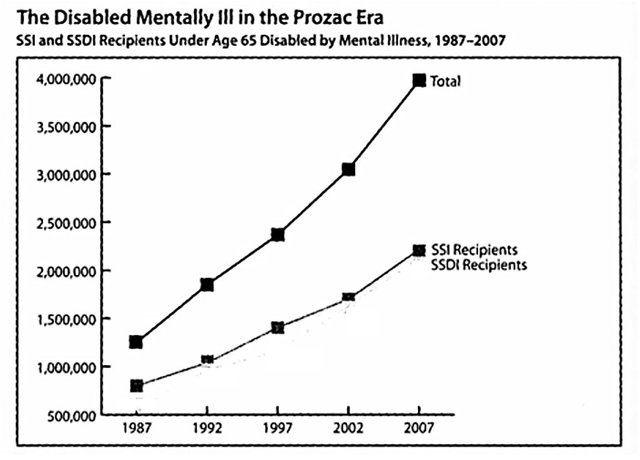
Well how about that! It's almost like simplistic, one-size-fits-all approaches to psychiatry aren't the best we can do.< /snark >
I think this issue is pretty interesting. I recently became a father, and it's led me to think a lot about how it's best to teach my daughter to deal with these sorts of issues. I hope you write more here!
Thanks for your support - and congratulations on your recent fatherhood!
you have no idea how insulting this article is to people who are actually suffering from a disorder
Jonathan, bravo for posting this brave and much-needed article. My mother, who was finally successful in ending her own life on the seventh attempt (that I know of) in 2006, was experimented on like a guinea pig by the British psychiatric establishment. They insisted that it was her 'brain chemistry' causing the problems; and that the 'right' medication at the 'right' dosage would get her back on track. Seeing the side effects of that shit, which made things far worse rather than helping, was pretty tough, I can tell you. The last thing the British 'experts' did for my mum was to 'give' her electro-shock 'therapy, which 'miraculously' had the effect of her suddenly wanting to go home (!) from the madhouse they'd consigned her to. Can you guess what happened next? Yup, in her desire to avoid further torture, she obviously figured out that she'd better get it right this time, and gassed herself in her car....
What you've written here is important, and needs more exposure. Upvoted, followed, and kudos sent your way for being brave enough to say it despite the people who think you're a danger to humanity for doing so. On behalf of my mother, I'd encourage you to continue with your research, despite the protestations and convictions of those people and their 'snake oil' medication/'therapies'...
Thanks for your support and I'm sorry to hear about your mother.
Of course there's billions of dollars involved here. It's always about the money. I read a study a couple years back where 10 perfectly healthy, well-adjusted kids were sent to 10 different doctors, with (false) minor complaints of being fidgety, bored or hyperactive. ALL 10 were "diagnosed" with attention deficit disorders and prescribed dangerous chemicals to poison themselves with. Good thing the State is looking out for us!
Without government, who would block the sale of life-saving drugs?
i love molyneux. this was a good one. have you seen the: There Is No Such Thing as Mental Illness? it's a good one. can't say i agree with his analysis of the gmo situation though.
Yeah, I've seen it. I don't recall his comments on GMOs, though.
apparently, they are perfectly safe and questioning is silly.
@invisiblegorilla I am glad someone finally wrote something on this topic. I've got my own hypothesis on 'disorders', and it's definitely similar to yours. Would you be interested in doing a podcast regarding this topic with me? I think there is a long dialogue we would be able to have, to certainly fill in information gaps in this topic.
You can find me on the steemit.chat under stephen.polsky if you want to discuss this further.
Thanks for your feedback. I'll find you in the chat, later.
Great post. I've held these same convictions but can't say I have much of an educated basis for them. I've just experienced the power of my own words in helping me overcome my own negative emotions. I don't deny there are chemical imbalances that make the battle harder for others, but I think our culture's tendency to label and medicate causes many who could overcome these challenges without medication to shirk personal responsibility.
Thanks for your feedback, jasonstaggers. I would recommend looking into the long-term adverse effects of many of these psychiatric drugs. Ironically, they are often the cause of these so-called imbalances.
Yeah. It's no coincidence that most (possibly all) of the mass shooters recently were on psychotropic meds.
Appreciating your point about the power of words, @invisiblegorrilla. While it's true that many people genuinely suffer from these "disorders", it's also true that healing starts from within, and a paradigm shift is in order to get there. Healing is truly limitless, but when one is locked into a belief system that there's something broken or insurmountable within themselves, one is doomed because they convince themselves that "healing is impossible". Also, Big Pharma is the most powerful industry on the planet, and they directly profit off consumers who turn to western medicine for relief--which is unfortunately the leading cause of death in America. https://steemit.com/health/@gardenofeden/western-medicine-is-the-leading-cause-of-death-in-america
I'm glad you found my approach valuable - and sorry for being slow to respond!
@invisiblegorilla You write: "I want to acknowledge that throughout this article, I’ve written words such as ‘disorder’ and ‘illness’ in quotations. This is not to minimize or negate the seriousness of sensations people who have these words applied to them, experience. However, I simply refuse to speak in the language of the pharmaceutical industry and large proportions of the psychiatric community."
You're far from alone in my experience. I personally always write "ADHD" in quote marks, for example, since I know how that particular reification was invented.
When I first heard of it some years ago, it was customary for anyone who didn't accept the American Psychiatric Association's perception of reality to be accused of being a Scientologist. I don't know if that holds true still. Perhaps things have moved on (I haven't involved myself in any discussions on this topic for a long time). My views on the subject were more likely to find me accused of having no medical or other professional training, to which my response has always been that, when people speak to me of the DSM and its stories, they are no longer in the world of medicine; we are in the world of scam artistry where I've invariably been on much more solid ground than they have.
Hey bobcollier, thanks for sharing. I think I recall Robert Whitaker talking about how Scientology was used to discredit the critics of psychiatry in his book, Anatomy of an Epidemic.
Yes, it did seem to be that "You must be a Scientologist" was a stock response to anybody who questioned the official line. There seems to have been a kind of war going on between the Church of Scientology and psychiatry, the American Psychiatric Association in particular, for a long time. I learn from your introductory YouTube video that you're from England. So am I, and I live in Australia now. Years ago when I was exploring what I choose to call "the psychiatric labels scam", I found that advantageous because my thinking on these things wasn't trained by the direct to consumer advertising that Americans have been and are subjected to. Speaking of which, you might be interested in the work of John Breeding, author of The Wildest Colts Make The Best Horses.
Thanks for the recommendation. Based on the Amazon description, it sounds like quite an interesting read.
He has an interesting website too at www.wildestcolts.com
psychiatry is attempting to pathologize personality. they admit themselves that they have never brought about a single cure, ever. not one. i keep finding people who say that, short of actual physiological damage (TBI, etc) the place to start is with diet. who would have guessed that what you build your body out of has a great effect on how it functions. try building a car out of marshmallows and see how far you get. mmmm marshmallows.
thanks for the post.
Both a healthy diet and regular exercise are important contributors to the maintenance of psychological well-being.
Thanks for your feedback.